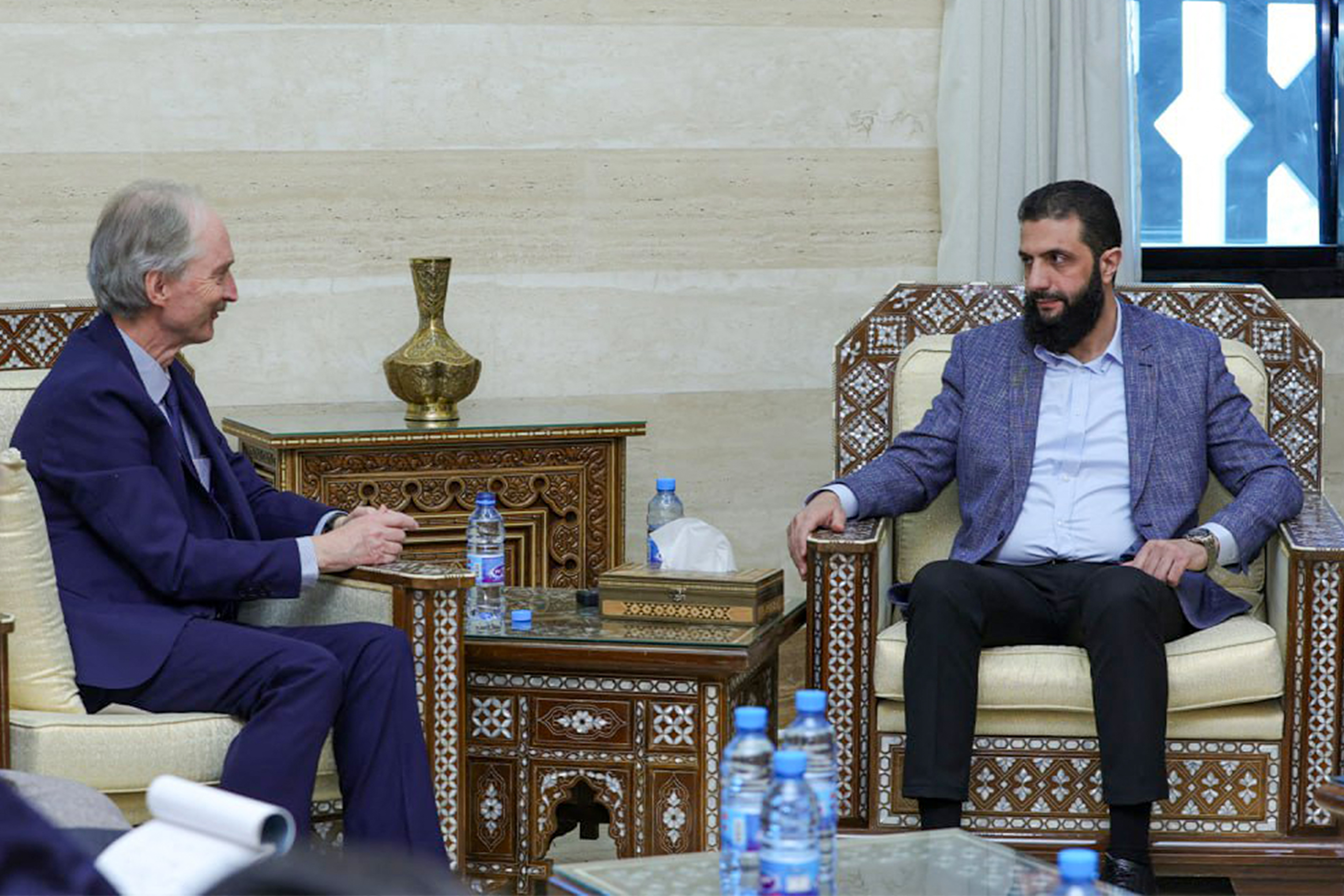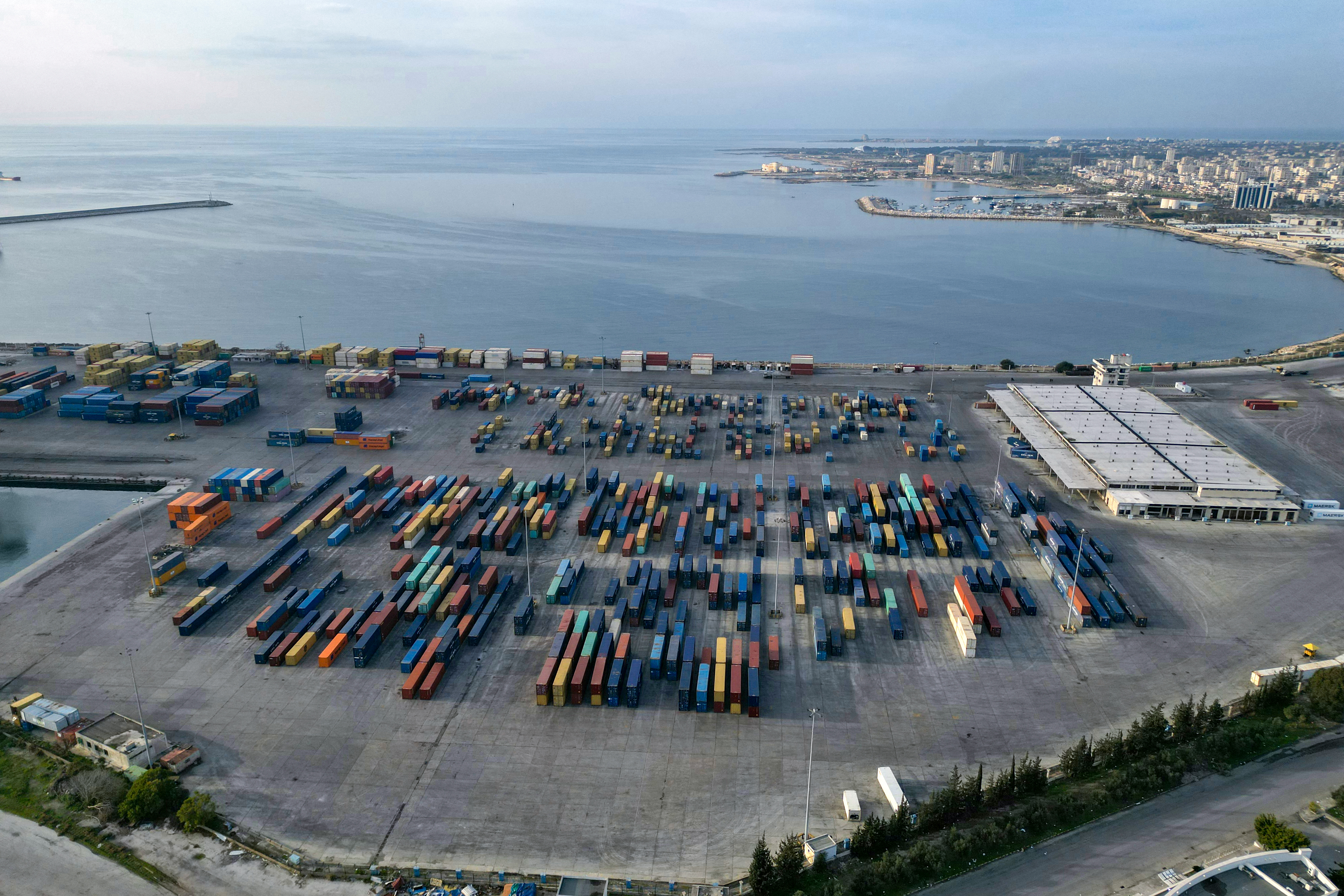
DAMASCUS - Syria's Hayat Tahrir al-Sham (HTS) leader, Ahmad al-Shara, held a meeting with UN Special Envoy for Syria Geir Pedersen on Sunday in Damascus to discuss the political transition in the country, according to a statement released by local al-Watan Online news outlet.
Al-Shara, also known as Abu Mohammed al-Julani, said that UN Security Council Resolution 2254, adopted in 2015 concerning Syria's political transition, now requires an update to reflect the current realities in the country, urging a "fresh approach" that aligns with Syria's new leadership and evolving circumstances.
Al-Shara led a 12-day military operation that resulted in the downfall of former President Bashar al-Assad's government on Dec 8.
During the meeting, al-Shara underlined the importance of "swift and effective" cooperation to address Syrian citizens' needs, restore the country's territorial unity, and pave the way for reconstruction and economic development.
ALSO READ: Israel approves plan to expand settlements in occupied Golan
He also stressed the need for "careful, deliberate steps" in rehabilitating state institutions to ensure the forming of a "strong and efficient" governance system.
The HTS leader pledged to create a safe environment for the return of refugees, adding that the measures are being implemented with "great caution" and supervised by specialized teams so as to ensure optimal outcomes for the nation's future.
For his part, Pedersen said that the UN is closely monitoring the rapidly evolving situation in the country and is looking forward to the next steps toward a political transition following the ouster of Assad.
Speaking to reporters in Damascus earlier in the day, Pedersen emphasized the importance of Syrian state institutions fully resuming their functions under secure conditions.

"We are working with all segments of the Syrian people ... and we want to see no acts of revenge. Instead, we must ensure that institutions return to work, backed by the necessary security measures," he said.
Also on Sunday, Al-Shara unveiled plans for comprehensive economic and security reforms, including a proposed 400 percent salary increase for workers, the disarmament of all armed factions, and efforts to rebuild war-torn communities.
In a televised interview with state-run Syria TV on Sunday, al-Shara, also known as Abu Mohammed al-Julani, emphasized the new administration's aim to consolidate power under state control.
"All factions will be dissolved, and no arms will remain outside the authority of the state," said al-Shara.
ALSO READ: How the US and Israel destroyed Syria and called it peace
He further disclosed that economic measures are being studied to address the country's prolonged hardships. "We are considering a plan to raise salaries by 400 percent," he noted, although no specific timeline was provided.
Reconstruction and the resettlement of displaced citizens have also emerged as critical priorities. Al-Shara pledged to rebuild destroyed homes and ensure the return of refugees.
Meanwhile, Qatar announced on Sunday that it will resume operations at its embassy in Syria, effective Tuesday, with Khalifa Abdullah Al Mahmoud Al Sharif appointed as the charge d'affaires.
In a statement, Qatar's Ministry of Foreign Affairs noted that this move marks the restoration of diplomatic relations with Syria after a 13-year hiatus.
READ MORE: Israel intensifies strikes on Syria, Al-Shara urges state-building
The ministry emphasized that the reopening of the embassy will enhance Qatar's ongoing humanitarian efforts, including its airlift of relief supplies to support the Syrian people during the transitional phase and address urgent humanitarian needs.
Qatar announced on Wednesday to reopen its embassy in Damascus, days after a militant coalition led by Hayat Tahrir al-Sham ousted former President Bashar al-Assad last week.
Qatar closed its embassy in Damascus in 2011 following the outbreak of anti-government protests in Syria.


